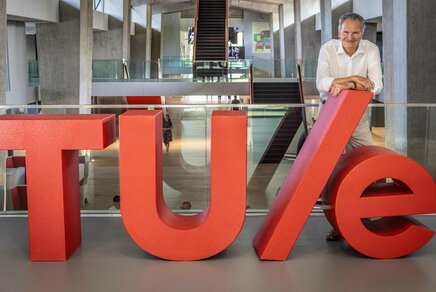Collaboration between the university and business has many advantages and brings many benefits to society. To safeguard the interests of all the different parties involved, there are clear rules of the game. For example, scientific research must always be able to take place independently and impartially.
Codes of conduct for scientific integrity
Scientific research is a cornerstone of the modern knowledge society. Among other things, it provides knowledge for political decision-making and momentum for societal development and economic growth. As a result, there are also firm frameworks for academia. One of the most important is the Dutch Code of Conduct for Research Integrity, with its guiding principles of honesty, diligence, transparency, independence and responsibility.
Of course, this code of conduct also applies to the research TU/e does together with companies and to the work of part-time professors from industry. In this context, it is important that the code prescribes impartiality and that academics are not guided by commercial interests in the process of practicing science.
In addition, the code requires academics to be open and comprehensive in all scientific publications regarding the role of external stakeholders, clients, funders, potential conflicts of interest and relevant ancillary activities.
Furthermore, TU/e has its own additional code of conduct, which is more tuned to the specifics of academic activities at a university of technology. This states, among other things, that the results of research performed with companies must be published within an established reasonable period of time. All TU/e academic staff and master’s students are asked to sign this TU/e code. The university monitors compliance with the codes of conduct.
In addition, as of the 2023/2024 academic year, TU/e has an integrity ambassador who takes a broad look at integrity at the university with an important focus on scientific integrity, naturally.
Transparency about ancillary activities
Universities must be well interconnected with society in order to contribute optimally to relevant issues and developments. The ancillary activities of researchers play an important facilitating role in this. However, transparency is important. In accordance with national guidelines, TU/e researchers must therefore report their ancillary activities on the TU/e website. In addition, any ancillary activities of researchers are reviewed during annual appraisals.
Transparency on industry revenues
TU/e is a forerunner of collaboration with industry. The university is therefore also transparent about its ties with industry, including by being open about the revenues of industrial partners. The TU/e annual report contains a complete list of the companies from which TU/e receives revenue, categorized by order of magnitude.
Position of part-time professors
Part-time professors, including part-time professors from industry, never work in a standalone manner but are always embedded in a research group, led by a full-time professor. The appointments of part-time professors have a term of five years, extendable if necessary.
No fossil fuel research
TU/e is fully committed to sustainability and the energy transition, the greatest societal challenge ever. It can only be tackled by joining forces as much as possible. We therefore collaborate with all strong R&D parties that can help create the necessary sustainable solutions, including companies with a background in fossil fuels. However, collaboration with such parties must focus on sustainability and the energy transition; we exclude fossil fuel research. There is a robust review procedure within TU/e that oversees this.
Intellectual property
Ensuring that new technology reaches the market and has real impact, requires the protection of intellectual property (IP). Without this protection of IP, anyone can copy new ideas, which would dry up investment in research. IP is thus a crucial prerequisite for innovation.
In the case of research performed with industry, TU/e and partner companies arrange the allocation of IP in accordance with the applicable guidelines within the national R&D&I framework regulation. These state that there are effectively two ways to legally innovate together: either the resulting intellectual property is divided based on the respective contributions, or a market-based fee is paid by the companies.
In practice, this means that TU/e’s joint research generates IP for companies as well as for the university itself. The university has no profit motive when using its IP but strives for the best opportunities for valorization, which is one of the three main statutory tasks of the university. For example, the university may sell its IP to an existing company, or transfer it to a new startup in exchange for equity interest, depending on its assessment of the best opportunities for impact.
Investments in companies
TU/e does not invest its money in startups or other companies. Financing is a task for other parties, and we feel that as a university we cannot use public money for high risk investments, which startups are by definition.
We do invest in our startups through knowledge created at TU/e, which we contribute in exchange for shares. By doing so, we can help ensure the optimal development of our startups to create maximum societal impact. When we are confident that the company is standing on its own, we sell the shares. So we do not hold shares for profit.
Furthermore, we do a lot to facilitate our startups as much as possible, including the facilities of The Gate, to optimize the chances of a good business start-up and societal impact.
Our stories about cooperation with industry


Contact
-
Ivo Jongsma (Spokesman)
